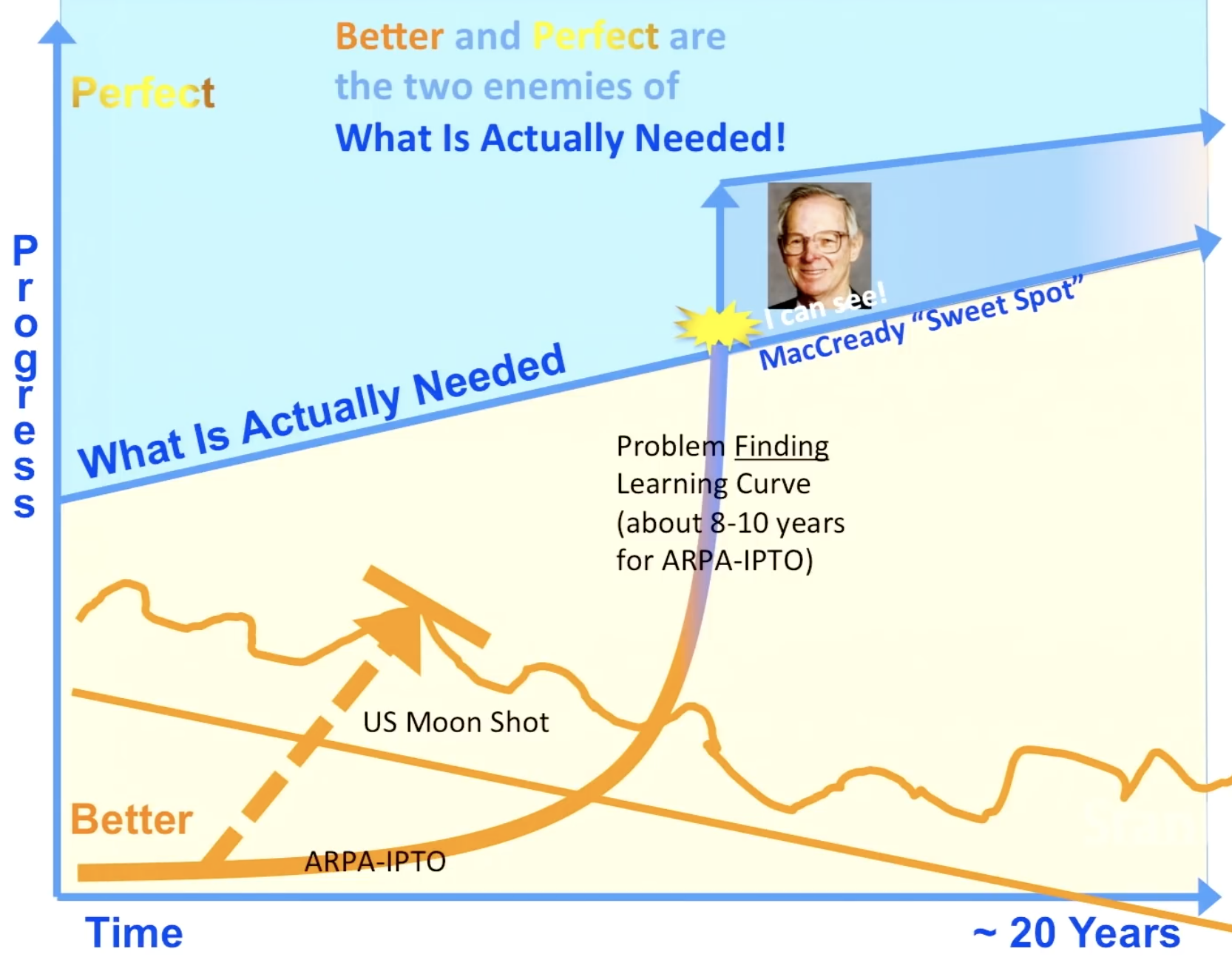Mary Rose Cook's notebook
The public parts of my notebook.
Alan Kay, How to Invent the Future
The YC / Stanford startup class.
Part 1
https://www.youtube.com/watch?v=id1WShzzMCQ
Learn the rules of the pros, remember the perfume
Learn all the rules of the pros, then forget it all so you can come up with new ideas. You'll retain the perfume of the rules which will help guide you towards the right stuff when you're coming up with the new ideas.
Don't increment, create an industry
Big leaps forward are rejected by companies because middle management would rather just make the thing that made the company successful make more money because it's not very disruptive to their lives.
The present is the worst place to live
Living in the present means you're completely out of it. What we have now is always crap. See it as punchcards and mainframes. So if you want to invent the future, you can't be living in the present.
Vision + problem finding
When you're working on hard things, using a vision and problem finding is much better at the beginning. If you problem solve too early, you run the risk of choosing the wrong problem because you'll be blinded by the present.
High rate of failure is fine
Failing to implement something is an error. You should be ashamed. But failing to invent something new is a not shameful. You expect a high failure rate for design.
Invent the things you need to reach the vision
The XEROX PARC stuff was done in about 12 years. But it was preceded by research done for WWII (the Manhattan Project) and research done for the Vietnam War (MIT Building 20 radar project). So it was actually 30 years in the making. So much stuff had to be invented to enable the inventions of PARC.
Don't see what's available and make do with it. Instead, you have to invent the things the vision needs.
An important outcome of the research is better researchers.
MacCready sweet spot

You shouldn't focus on better or worse (the orange wiggly line), you should problem find until you hit something that is really needed. Then the area between the short blue line above MacCready's head is the area you can explore to find great solutions.
Focus on thresholds. That way, you're not always just comparing to local variations.
MacCready was the man who invented man-powered flight. This was the problem that was actually needed. Contrast with the Moon landings which were a dead end because landing on the Moon wasn't what was needed and the technology to do (burning tons of chemicals that are so heavy you need a huge rocket to do it) was a dead.
Wayne Gretzky skated to where the puck is going to be
Kay used this idea to talk about a way to get out of the present. Extrapolate to 30 years in the future where you think, "Surely we'll have X". (The skating.) Then dial it back to 15 years in the future and use extremely expensive/overpowered technology to implement it.
Part 2
https://www.youtube.com/watch?v=DIR6Rmhm3To)
Context is worth 80 IQ points
IQ. Leonardo had IQ. But he couldn't ever build an engine to power his machines because he didn't have the knowledge.
Knowledge. Henry Ford did have that knowledge, even though he might not have been as smart.
Context / world view. Newton had the right context / world view to invent the laws of motion.
(Kay doesn't really say what constitutes context.)
Watched up to 8m.
#notebook